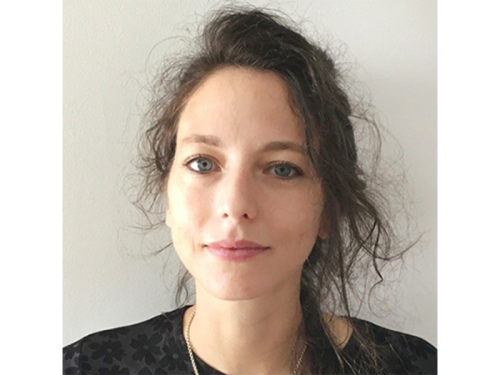
Date: July 22, 2021
Time: 11:00 a.m. - 12:00 p.m.
Location: Virtual over Zoom
Sara Constantino
Social Accelerants and Decelerants of Climate Action
Thursday, July 22, 2021
Bio
Sara Constantino is an interdisciplinary social scientist working on social and environmental policy and decision-making. She is currently an associate research scholar at the School of Public and International Affairs at Princeton University and a Lecturer at the High Meadows Environmental Institute, and will be starting as an assistant professor at Northeastern University in January. Her research focuses on understanding the interplay between individual, institutional and ecological factors on perceptions, policy preferences and responses or resilience to extreme events. In particular, recent studies look at the role of polarization, social norms and governance in stimulating or stifling support for climate action. Previously, she was a senior research fellow with the Jain Family Institute, an applied research organization that focuses on welfare policy and digital ethics, and a founding editor at Nature Human Behavior. She received her bachelor’s degree in economics from McGill University, a master’s degree in economics from University College London, and a Ph.D. in cognitive sciences, with a focus on learning and decision-making in dynamic environments, from New York University.
Abstract
The scale and pace of carbon-intensive development has driven climate change and biodiversity loss, with unequal social impacts. However, despite the transformative change needed across our social and economic systems to address these issues, and the technological ability to do so on many fronts, there is continued political resistance to passing new legislation or changing the status quo. Against this backdrop, recent opinion pieces have highlighted the potential for local shifts in social norms and values to trigger widespread social change and collective climate action from the “bottom-up”. Critically, the success of these movements depends on how climate change maps onto group identities, such as political affiliation.
In this presentation, I will focus on some recent and ongoing studies that use repeated surveys, virtual lab experiments, and pre-existing datasets to shed light on the role of social factors and experience of extreme events in shaping perceptions and values, policy preferences and coordinated action. In particular, I will present results from a study showing how polarization or strong in and out-group identities can facilitate coordination on existing norms but also stifle the emergence of new collectively beneficial norms. This work suggests that social norm interventions aimed at increasing sustainable behaviors or values will need to grapple with existing partisan or group divisions. I will then show results of an ongoing study that shows how experience of extreme events such as Covid-19 or extreme weather can start to close the partisan gap on risk perceptions, trust in social institutions and policy preferences.
About the New Light Series
New Light: Rising Stars in Energy and the Environment is a summer webinar series to spotlight associate research scholars, postdoctoral research fellows, and other early-career researchers affiliated with the Andlinger Center for Energy and the Environment. Weekly webinars feature a diverse range of researchers working on cutting-edge topics across disciplines who seek to solve society’s most pressing problems in energy and the environment. View the full line-up.
This talk is co-sponsored by the Center for Policy Research on Energy and the Environment and the Arthur L. Irving Institute for Energy and Society at Dartmouth.